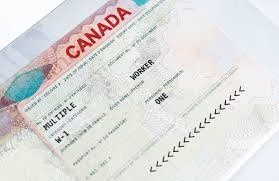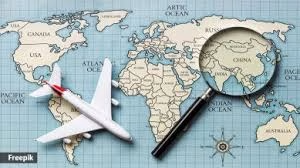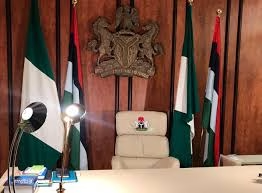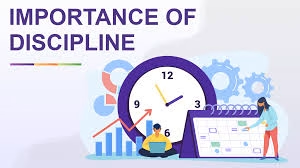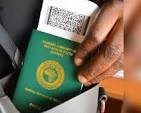
How to Get a Visa in Nigeria And How Nigeria Makes You Suffer First Even Getting a Visa Is a Battle
Getting a visa in Nigeria is one of the most frustrating experiences a person can go through. It’s not just paperwork. but It’s humiliation, waking up at 4 a.m. to line up outside an embassy in Victoria Island. It’s dealing with rude officials, incomplete information, vague rejection reasons, and “connections” that suddenly surface only when you grease palms.
In developed countries, visa applications are usually straightforward. In Nigeria, it’s a gatekeeping industry. And nobody is talking about how much stress, shame, and money it takes for an average Nigerian to simply travel.
In this article, we’ll walk you through how to get a visa in Nigeria but not just with sugar-coated tips. We’ll expose the corruption, discrimination, and brutal realities that Nigerians face at the hands of foreign embassies and even their own government.
The Visa Process in Nigeria On Paper
Let’s start with what the embassies say you need:
1. Choose Your Visa Type
- Tourist visa
- Student visa
- Work visa
- Transit visa
- Permanent residency or immigration visa
2. Complete an Online Application
You’ll usually visit the embassy’s site (e.g., US Embassy Nigeria,) and fill out a form.
3. Prepare the Documents
Typically includes:
- Valid international passport
- Passport photograph
- Proof of funds
- Employment or admission letter
- Travel itinerary
- Proof of accommodation
- Return ticket reservation
- Travel insurance
- Visa fee payment
4. Schedule Your Interview or Biometrics
You’re given an appointment date at the Visa Application Centre (VAC) or the embassy itself.
5. Attend Interview and Submit Biometrics
READ
Top 5 Countries for Nigerian Hustlers
The Nigeria Immigration Service
The Best Time to Travel to South Africa
6. Wait for Decision
Sounds simple, right? On paper, yes.
The Real Visa Process in Nigeria Chaos, Corruption, and Connections
Now let’s discuss what really happens:
1. Delays in Scheduling
- Websites crash.
- Appointment slots disappear mysteriously.
- Some embassies (like Italy or South Africa) have fully outsourced appointments to private agents who demand ₦30,000–₦100,000 to “secure a date.”
2. The Hidden Fees
- Bribes to embassy staff.
- Extra charges from “travel agents” who claim they can help you “package” your application.
- Scammers who promise 100% visa approval with forged bank statements and fake hotel bookings.
3. Ridiculous Interview Questions
- “Why do you want to travel?” (As if it’s a crime)
- “Are you coming back?” (Judging you like a criminal)
- “Who is funding your trip?” (As if being sponsored is illegal)
And even when you answer honestly, you still get rejected without explanation.
Embassies in Nigeria Are Not Just Selective — They Are Discriminatory
Let’s talk about the racism and classism baked into the visa process.
African Passports = Red Flag
No matter your profession, earnings, or purpose, the moment a white consular officer sees “Nigerian,” their first assumption is: you won’t come back.
Meanwhile, citizens of countries like Poland or Chile can travel to most places visa-free. But Nigeria — Africa’s biggest economy — still gets treated like a flight-risk nation.
The Passport Privilege Hierarchy
- Green Passport (Nigerian) = 45 visa-free countries (mostly other African countries and Caribbean islands).
- Blue Passport (US) = 185 visa-free countries.
- Red Passport (UK) = 187 visa-free countries.
And yet, the Nigerian government does nothing to negotiate better terms. Instead, they punish their own citizens with broken systems and visa denial silence.
Visa Rejection: The Emotional & Financial Toll
Visa rejection is more than an inconvenience it’s an emotional trauma.
Imagine:
- Spending ₦300,000 on documents, visa fees, and logistics.
- Booking flights and accommodation based on hope.
- Getting rejected without refund, without reason, without mercy.
You go home, embarrassed and bitter. Your dream dies, not because you’re a criminal, but because a consular officer didn’t like your “travel history.”
Some people even develop depression after repeated rejections yet nobody talks about this mental health toll.
The Travel Agent Mafia: A Parallel Industry of Exploitation
In response to the broken visa system, an underground network of travel agents has emerged promising you Schengen visas, UK work permits, Canadian student routes.
What they don’t tell you is:
- Many of these are scams.
- They charge from ₦300,000 to ₦1 million.
- They often use fake documents which can get you banned permanently.
And still, Nigerians are desperate enough to try.
This is what happens when the legal route becomes almost impossible corruption becomes the alternative.
How to Increase Your Chances of Getting a Visa (Despite the Madness)
If you still want to do things properly, here’s what can help:
1. Build Travel History
Start with visa-free or visa-on-arrival countries like:
- Ghana
- Rwanda
- Kenya
- Seychelles
- Maldives
- Turkey (e-visa)
Once you’ve traveled a few times, you’re seen as “less risky.”
2. Apply With Solid Documents
- Legitimate bank statements (not photoshopped)
- Valid employment or admission letters
- Strong ties to Nigeria (like land ownership, marriage certificate, company registration)
3. Don’t Use Fake Agents
They will ruin your chances permanently.
4. Be Honest in Your Interview
Lie once, and your future applications are at risk. Embassies share biometric records.
5. Check Requirements Thoroughly
Some embassies change their visa policies often always verify from official websites, not gossip.
Embassies That Nigerians Hate the Most (Based on Experience)
Warning: These are based on public sentiment and travel forums not official data.
🇬🇧 UK Embassy
- Slow processing
- Rejects without refunds
- “We’re not satisfied you’ll return” even if you’re a CEO
🇺🇸 US Embassy
- Harsh interviews
- Emotional rejection
- Even families with kids get denied with no explanations
🇿🇦 South African Embassy
- Long delays
- Appointments “controlled” by agents
- Rumors of bribes for approval
🇮🇹 Italian Embassy
- Almost impossible without connections
- Rumors of racism and language discrimination
Embassies That Nigerians Prefer
🇦🇪 UAE (when open)
- Fast approval (before the ban)
- Easy tourist visas
🇹🇷 Turkey
- Online e-visa available
- Friendly immigration process
🇲🇻 Maldives
- Visa on arrival
- No drama, no discrimination
🇷🇼 Rwanda
- Visa-free
- Clean, safe, and tech-forward
Why the Nigerian Government Must Wake Up
The visa crisis is not just about travel. It’s about global perception.
- Why hasn’t the Nigerian government signed more bilateral visa agreements?
- Why are Nigerians treated like suspects while corrupt politicians fly private jets to London?
- Why do we tolerate being second-class citizens globally?
If countries like Seychelles and Mauritius can negotiate visa-free access to over 140 countries, why can’t Nigeria?
Whatsnextng Conclusion: Getting a Visa in Nigeria Shouldn’t Feel Like Begging
Getting a visa in Nigeria is more than a process it’s a political, emotional, and psychological war. And for many Nigerians, it’s one they lose repeatedly.
But it doesn’t have to stay this way.
- We need better diplomacy from our government.
- We need awareness of travel scams and fraud.
- We need youth-focused reforms that make mobility a right, not a luxury.
Until then, every visa application will feel like playing Russian roulette where even if you follow the rules, you can still be punished for holding a green passport.
And that, dear reader, is the sad, frustrating, controversial truth about how to get a visa in Nigeria.
